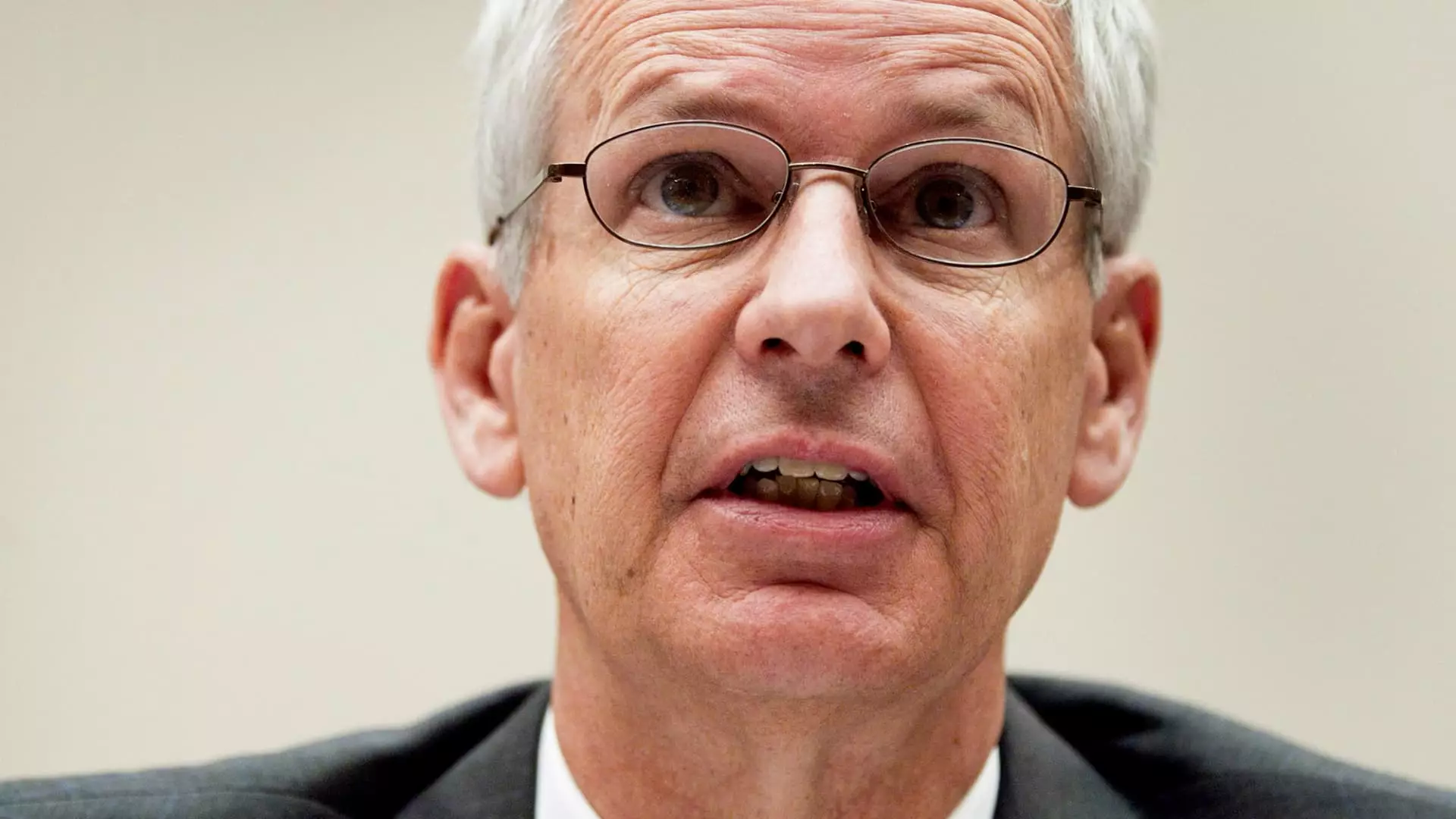In a cinematic twist of irony reminiscent of the beloved sitcom that inspired its metaphors, Dish Network’s strategic ambitions appear to have come to an uninspiring halt. The trajectory, likened by co-founder Charlie Ergen to the erratic plotlines of “Seinfeld,” has culminated in a merger that echoes the show’s less-than-satisfactory conclusion. With a nominal sale price to DirecTV and staggering debt at its back, the company’s narrative, which once promised vibrant growth, now reads more like a cautionary tale about the perils of stagnation in an evolving industry.
Charlie Ergen’s reference to “Seinfeld” during a 2011 earnings call encapsulated the hopeful yet vague vision he had for Dish. Much like the sitcom’s convoluted narratives, Ergen suggested that the company would eventually find clarity and direction. Unfortunately, unlike the sitcom, which delighted audiences with its clever resolutions, Dish has fallen into a bleak storyline that fails to inspire confidence. Initially, the company aimed to transition into a nationwide wireless carrier while simultaneously managing its pay-TV business—a business model increasingly outdated in today’s streaming age.
As the streaming giants continued to amass subscribers, Dish found itself grappling with an exodus of its customer base. Over the last several years, Dish saw a staggering 63% reduction in video subscribers, a trend that raised the alarms for a once-prominent player in the television landscape. The ambition to integrate a wireless service alongside pay TV proved not only challenging but ultimately distracting. The company seemed caught in a web of competing objectives, which hampered its ability to establish a cohesive strategy.
In an unfortunate turn of events, the decision by EchoStar, Dish’s parent company, to offload the satellite operator for just $1 while carrying $9.75 billion in debt paints a grim picture of the company’s current situation. This satellite television provider, which once stood as a titan in the realm of cable alternatives, now faces the harsh reality of mounting debts. The plummet in EchoStar’s shares—an 11% drop on the news of Dish’s sale—serves as a stark indication of investor sentiment and confidence in the telecom industry.
The once lofty market capitalizations of both Dish and DirecTV have dwindled drastically since their prior merger discussions in 2014. At that time, DirecTV’s valuation hovered around $40 billion, while Dish was valued at more than $28 billion. Following DirecTV’s sale to AT&T for $49 billion equity in 2015, Dish embraced independence yet encountered a rapid devaluation as its core service began to wane.
The Struggles of Transitioning in a Streaming Era
The failure to evolve alongside the shifting tides of consumer preference is evident in Dish’s plight. In 2019, the company acquired Boost Mobile in hopes of building a wireless framework that could complement its dwindling pay-TV reach. However, without strategic partnerships and the financial backing necessary to fully realize its ambitions, Dish found itself grappling with competing priorities that ultimately led to a lack of capital necessary for sustained growth.
CEO Hamid Akhavan noted that the multitude of directions pursued by the company became a management distraction rather than an avenue toward innovative success. With satellite TV subscriptions on the decline, the high-stakes gamble of simultaneously managing a traditional service while entering into the competitive wireless market proved untenable.
The thematic parallels between Dish’s decline and the infamous “Seinfeld” series finale highlight the disappointments that can accompany ambitious expectations. While the sitcom managed to deliver moments of poignant humor and insight, its conclusion left a bitter taste among loyal fans—an ending that seemed disjointed and unsatisfactory. Through a similar lens, Dish’s journey has become one riddled with unmet potential. The once lively forecasts offered by Ergen now sit in stark contrast to a narrative that can only be described as deflated.
As the curtain falls on Dish’s ambitious strategy, the lessons learned provide valuable insights for other players in the content distribution space. In an age where consumer preferences evolve rapidly, companies must maintain flexibility and adapt to shifting landscapes. Dish’s experience serves as a warning—an illustration of the risks of losing sight of a cohesive vision amidst a distracting juggling act of competing objectives. The once-promising future, like the uneventful finale of a storied television series, reminds us that not every narrative leads to a satisfying conclusion.

